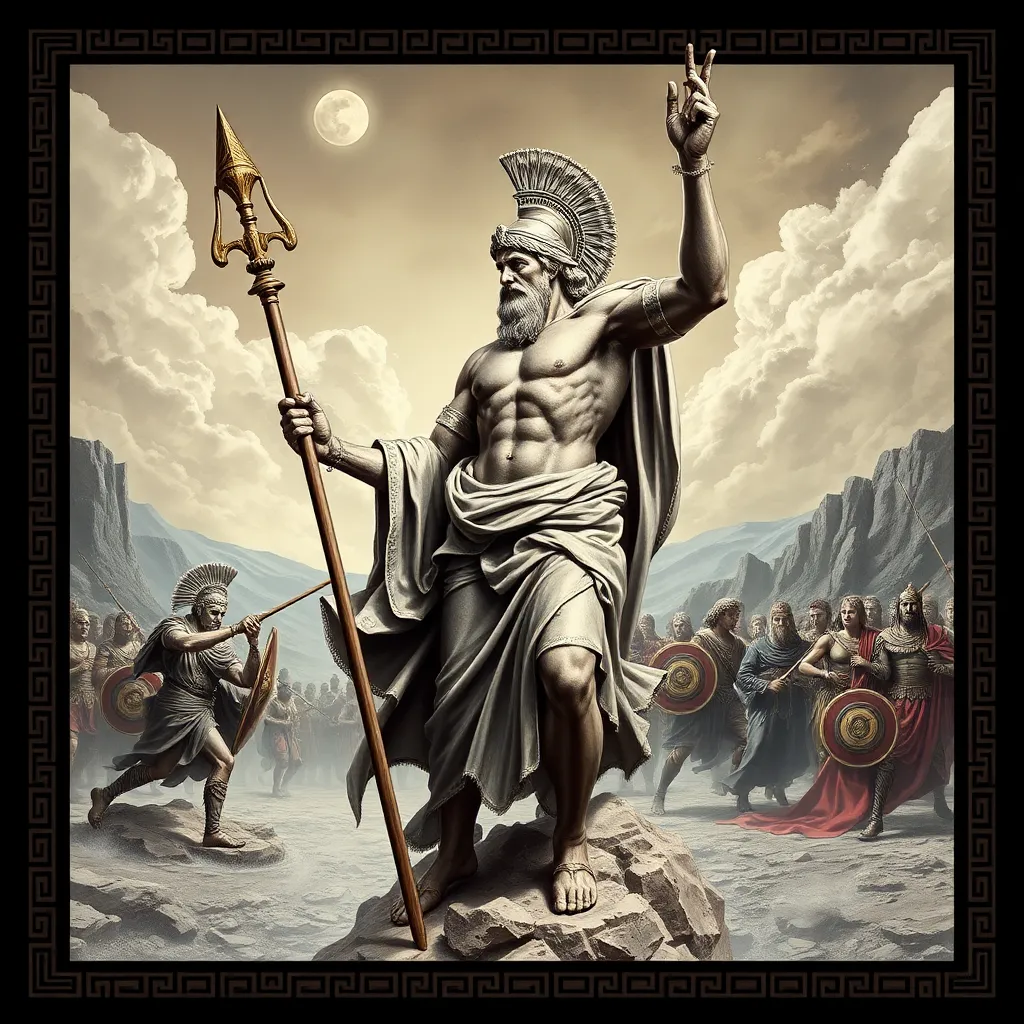The Character of Sarpedon: Fate and Valor in The Iliad
I. Introduction
Sarpedon, a prominent figure in Homer’s epic poem, The Iliad, embodies the complex interplay of fate and valor that defines the heroic ethos of ancient Greek mythology. As a significant character, he showcases the struggles faced by heroes grappling with their destinies, often predetermined by the gods. The themes of fate and personal valor are crucial in understanding the nature of heroism in ancient Greece, where the line between divine influence and human action often blurs. This article posits that Sarpedon’s character exemplifies the tension between fate and personal valor, serving as a poignant reminder of the human condition within the epic narrative.
II. Sarpedon’s Lineage and Background
Sarpedon is introduced as the son of Zeus, the king of the gods, and Laodamia, a mortal woman. This divine lineage grants him a unique status among the warriors of the Trojan War, as he straddles the realms of both god and man. As a leader of the Lycians, Sarpedon commands respect and loyalty from his troops, guiding them with both strength and wisdom.
- Ancestry: Son of Zeus and Laodamia
- Role: Leader of the Lycians
- Significance: Embodies the duality of divine heritage and human experience
Sarpedon’s noble birth grants him the valor and expectations of a hero, yet it also foreshadows the tragic fate that awaits him. His character serves as a bridge between the divine and the mortal, illustrating the complexities of heroism in The Iliad.
III. The Concept of Fate in The Iliad
Fate, or moira
- Definition: The predetermined course of events in life
- Role of the Moirai: Determine the destiny of gods and mortals alike
Sarpedon’s fate is intricately tied to the broader themes of mortality and predestination in the epic. His awareness of his impending death adds a layer of tragedy to his character, highlighting the tension between his heroic aspirations and the inexorable pull of fate.
IV. Valor and Heroic Ethos
Valor, defined as great courage in the face of danger, is a cornerstone of the heroic ethos depicted in The Iliad. Sarpedon’s bravery on the battlefield exemplifies this valor, as he fights valiantly alongside his comrades. His actions are not merely for personal glory but are also driven by a deep sense of duty to his people and a desire to achieve eternal fame.
- Definition of Valor: Courage in battle and a commitment to honor
- Sarpedon’s Bravery: Fights valiantly and inspires his men
- Relationship to Honor: Valor earns respect from both gods and men
This valor places Sarpedon in stark contrast to the limitations imposed by fate. In his pursuit of glory, he embodies the heroic ideal, striving to leave a lasting legacy even in the face of inevitable death.
V. Sarpedon’s Speech to Glaucus
In a pivotal moment in The Iliad, Sarpedon addresses his companion Glaucus, articulating his motivations and beliefs regarding glory and fate. This speech serves as a reflection of his character and the heroic ideals of the time.
- Motivations: Desire for glory and a legacy
- Rhetoric about Glory: Emphasizes the importance of striving for honor
- Embodiment of Heroic Ideals: Represents the struggle against fate
Sarpedon’s speech encapsulates the essence of the heroic struggle, illustrating the belief that while fate may dictate the time of death, the pursuit of honor and glory remains a noble endeavor.
VI. The Moment of Sarpedon’s Death
The circumstances leading to Sarpedon’s death in battle are laden with emotional and thematic significance. As he fights bravely, he ultimately succumbs to the inevitable forces of fate. This moment is not only a turning point in the narrative but also a poignant commentary on the nature of heroism.
- Circumstances of Death: Engaged in fierce combat, ultimately struck down
- Emotional Impact: Evokes sorrow and admiration
- Interplay of Fate and Choice: Reflects the tension between predetermined fate and heroic action
In his final moments, Sarpedon epitomizes the tragic hero, where personal valor clashes with the inexorable grip of fate, leaving a lasting impact on both his comrades and the reader.
VII. The Aftermath of Sarpedon’s Death
The reaction of Zeus to Sarpedon’s death highlights the divine implications of his fate. As a father, Zeus is deeply affected by the loss of his son, showing the emotional weight of such events even among the gods.
- Zeus’ Reaction: Grief and acknowledgment of fate
- Impact on the Trojan War: Sarpedon’s death serves as a catalyst for further conflict
- Legacy: Becomes a symbol of heroism and tragic fate
Sarpedon’s legacy endures beyond his death, symbolizing the ideals of heroism intertwined with the tragic realities of fate. His character resonates with themes of honor, valor, and the human struggle against destiny.
VIII. Conclusion
In summary, Sarpedon’s character serves as a poignant exploration of the themes of fate and valor within The Iliad. His lineage, heroic actions, and tragic death illustrate the complexities of the human experience in the face of divine will. The tension between fate and personal valor remains relevant not only in ancient literature but also in contemporary discussions of heroism and destiny.
Ultimately, Sarpedon’s story encapsulates the timeless struggle against destiny, offering insights into the nature of heroism and the human condition. His character stands as a testament to the enduring relevance of these themes in literature and beyond.




